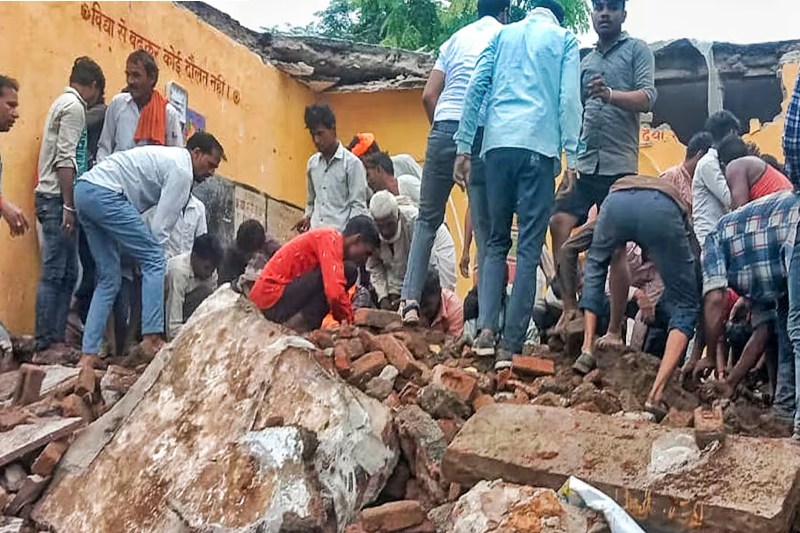
Centre Mandates Safety Audits in All Schools: States, UTs Directed to Act Urgently
In a sweeping safety directive issued in the wake of a tragic school building collapse in Rajasthan, the Ministry of Education (MoE) has mandated comprehensive safety audits in all schools across states and Union Territories (UTs). The ministry’s urgent move comes after a portion of a government school building in Jhalawar district, Rajasthan, collapsed on July 25, resulting in the death of seven children and injuries to 28 others.
Calling the incident a "wake-up call," the ministry emphasized the immediate need to assess and reinforce school safety mechanisms, both in terms of infrastructure and emergency preparedness.
Safety Audits and Structural Integrity Now Compulsory
A senior Education Ministry official stated that all schools and child-related facilities must undergo mandatory safety audits in accordance with national safety codes. These audits are to assess:
- Structural integrity of buildings
- Fire safety systems and emergency exits
- Electrical wiring and overall infrastructure
- Accessibility of emergency response mechanisms
States and UTs have been directed to urgently implement these audits and ensure strict adherence to the findings. The audits are to be conducted regularly to prevent lapses and ensure continued safety.
Emergency Preparedness and Training a Priority
The directive also stresses that school staff and students must be adequately trained in emergency situations. This includes:
- Evacuation drills
- First-aid training
- Crisis communication protocols
- Safety procedure rehearsals
To this end, the ministry has called for enhanced collaboration with local emergency agencies, including:
- National Disaster Management Authority (NDMA)
- Local fire services
- Police departments
- Medical emergency response teams
These agencies are expected to assist schools in conducting periodic training sessions and mock drills tailored to various types of emergencies — such as fire, building collapse, electrical hazards, and natural disasters.
Mental Health and Psychosocial Support to Be Strengthened
In addition to physical safety, the Ministry of Education has recognized the critical need to protect students’ mental and emotional well-being. The directive recommends:
- School-based counselling services
- Formation of peer support groups
- Implementation of community engagement programs
- Provision of psychosocial support during and after crises
The ministry underlined that psychological trauma following incidents like building collapses, bullying, or emergencies must be addressed with the same urgency as physical injuries.
Reporting Unsafe Conditions and Incidents: A 24-Hour Window
To enforce accountability and encourage timely response, the ministry has stated that any dangerous situation, near-miss event, or incident involving children must be reported within 24 hours to the designated state or UT authority.
Strict action is to be taken against delays, negligence, or failure to report or act, especially in cases that result in harm to children. This includes actions against school management, local bodies, or any other responsible party.
Community Involvement is Critical
The ministry’s directive also emphasizes the role of parents, guardians, local bodies, and community leaders in ensuring child safety. They are urged to:
- Remain vigilant about school environments
- Report unsafe conditions in schools, school buses, or public spaces used by children
- Participate in community-level safety reviews and awareness drives
By involving the wider community, the ministry hopes to build a shared sense of responsibility for protecting children in educational settings.
All School Boards and Education Departments Directed to Act Without Delay
The Ministry of Education has formally instructed all school boards, affiliated institutions, and state-level education departments to begin implementing the measures without delay. The directive is clear: student safety must not be compromised, and immediate steps must be taken to avoid tragedies like the one in Jhalawar.
The Education Ministry's call for urgent, system-wide action signals a turning point in India’s approach to school safety. With mandated audits, mental health integration, and community vigilance, the policy aims to create safer learning spaces for millions of children across the country.
As these directives begin rolling out, attention will turn to how quickly and effectively states and institutions respond — and whether this tragedy can catalyze lasting reforms in India’s school safety framework.



